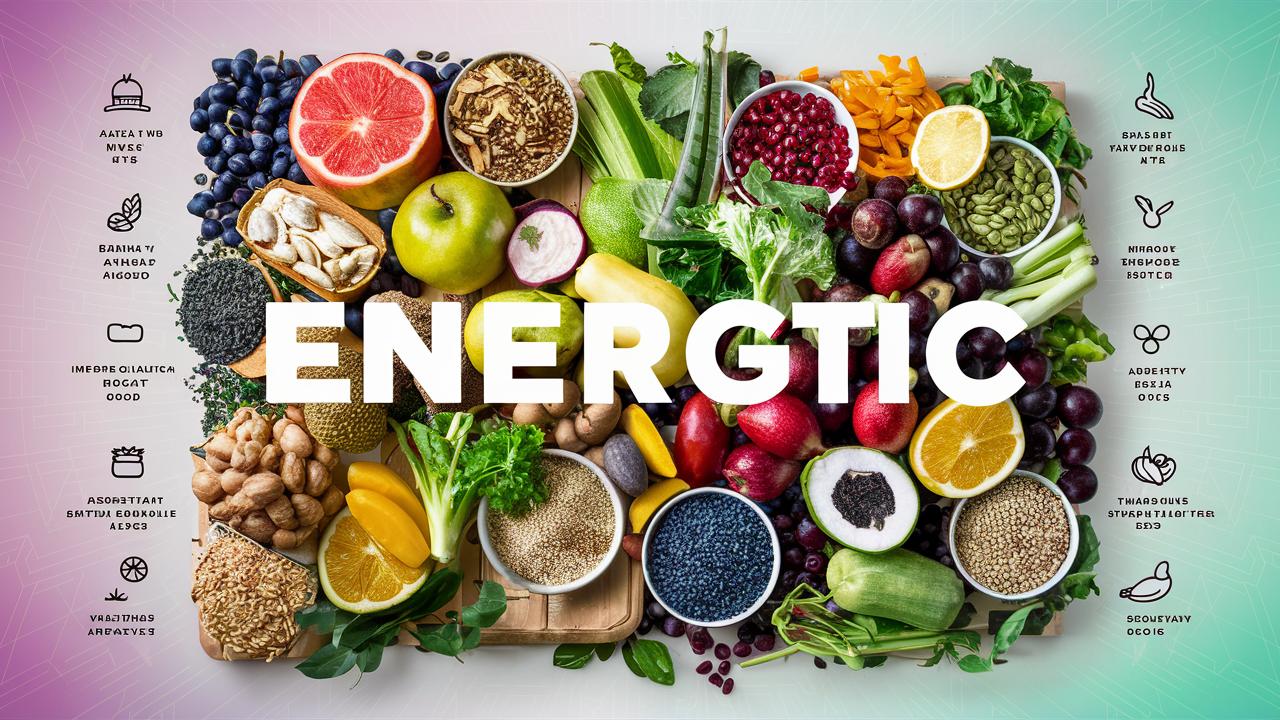
Eating for Energy Do you ever feel like you’re constantly running on fumes? Fatigue can be a major drain on our productivity, mood, and overall well-being. While there are various factors that can contribute to fatigue, often the culprit lies in our diet. What we eat has a profound impact on our energy levels, and by making informed dietary choices, we can naturally combat fatigue and experience a sustained boost in energy.
Understanding Fatigue: Beyond Just Feeling Tired
Fatigue goes beyond simply feeling tired after a long day. It’s a persistent state of exhaustion that can significantly impact our physical and mental performance. Common symptoms of fatigue include:
- Lack of energy and motivation
- Difficulty concentrating
- Difficulty sleeping or staying asleep
- Irritability
- Muscle weakness
Eating for Energy : Fueling Your Body for Optimal Performance
The body relies on various nutrients from food to generate energy. However, the type and quality of those nutrients significantly impact how we feel throughout the day.
The Blood Sugar Rollercoaster:
One of the main culprits behind fatigue is the blood sugar roller coaster. Refined carbohydrates and sugary foods can cause rapid spikes in blood sugar, followed by a sharp crash. This crash leaves us feeling drained and craving another quick fix to raise blood sugar levels again.
Essential Nutrients for Energy Production:
To achieve sustained energy levels, focus on incorporating these vital nutrients into your diet:
- Complex Carbohydrates: Complex carbohydrates, like those found in whole grains, fruits, and vegetables, are slowly broken down by the body, providing a steady stream of glucose for energy.
- Lean Protein: Protein is essential for building and repairing tissues, including muscle. Lean protein sources like chicken, fish, beans, and lentils provide sustained energy and help keep you feeling satisfied for longer.
- Healthy Fats: Healthy fats, found in sources like avocados, nuts, seeds, and olive oil, provide sustained energy and contribute to satiety.
- Vitamins and Minerals: Vitamins B complex, vitamin C, iron, and magnesium play crucial roles in energy metabolism. Deficiencies in these nutrients can contribute to fatigue.
Dietary Strategies for Combating Fatigue:
Here are some practical dietary strategies to naturally combat fatigue and keep your energy levels up throughout the day:
- Eat Regular Meals and Snacks: Skipping meals can lead to blood sugar crashes and fatigue. Aim for 3 balanced meals and 2-3 healthy snacks per day to maintain steady blood sugar levels.
- Start Your Day with a Nourishing Breakfast: A protein and fiber-rich breakfast sets the tone for the day. Opt for eggs, oatmeal with fruit and nuts, or Greek yogurt with berries.
- Choose Complex Carbohydrates: Swap refined carbs like white bread and pasta for complex carbohydrates like brown rice, quinoa, sweet potatoes, and whole-wheat bread.
- Incorporate Protein at Every Meal: Include a source of lean protein at each meal and snack to promote satiety and sustained energy.
- Don’t Fear Healthy Fats: Include healthy fats like avocados, nuts, seeds, and olive oil in your diet. These fats promote satiety and provide sustained energy.
- Stay Hydrated: Dehydration can lead to fatigue. Aim to drink plenty of water throughout the day to stay hydrated and support energy production.
- Limit Sugary Drinks: Sugary drinks like soda and juice can cause blood sugar spikes and crashes, leading to fatigue. Opt for water, unsweetened tea, or black coffee instead.
- Mindful Eating: Pay attention to hunger and fullness cues. Eat slowly and savor your food to avoid overeating and sluggishness.
- Manage Stress: Chronic stress can deplete energy levels. Practice stress-management techniques like meditation, yoga, or deep breathing exercises.
- Read Food Labels: Pay attention to added sugars and choose minimally processed foods.
Sample Meal Plan for Sustained Energy
Here’s a sample meal plan to illustrate dietary strategies for combating fatigue:
- Breakfast: Greek yogurt with berries and chia seeds, whole-wheat toast with avocado and scrambled eggs
- Mid-Morning Snack: Handful of almonds and a piece of fruit
- Lunch: Salmon with roasted vegetables and brown rice
- Afternoon Snack: Carrot sticks with hummus or cottage cheese with sliced bell peppers
- Dinner: Chicken stir-fry with brown rice and mixed vegetables
Additional Tips for Boosting Energy
In addition to dietary strategies, consider these tips to combat fatigue:
- Get Enough Sleep: Aim for 7-8 hours of quality sleep each night.
- Regular Exercise: Physical activity can boost energy levels and improve sleep quality.
- Limit Caffeine Intake: While caffeine can provide a temporary energy boost, excessive consumption can lead to jitters, anxiety, and disrupted sleep, ultimately worsening fatigue.
- Sunlight Exposure: Sunlight exposure helps regulate your sleep-wake cycle. Spend some time outdoors each day, especially in the morning.
- Consider Supplements: Talk to your doctor about potential vitamin or mineral deficiencies that might be contributing to fatigue. Supplements might be recommended if deficiencies are confirmed.
The Takeaway: Fuel Your Body for a Vibrant Life
By making informed dietary choices and adopting healthy lifestyle practices, you can naturally combat fatigue and experience sustained energy levels. Remember, the food you eat is the fuel that powers your body and mind. Prioritize whole, unprocessed foods, stay hydrated, manage stress, and prioritize sleep to build a solid foundation for optimal energy. Embrace the power of eating for energy and experience a renewed sense of vitality and well-being in all aspects of your life.
Empower Yourself with Knowledge:
- Websites:
- National Sleep Foundation: https://www.sleepfoundation.org/
- American College of Sports Medicine: https://www.acsm.org/
- Books:
Embrace a Holistic Approach for Optimal Energy
Combating fatigue involves a multifaceted approach. While diet plays a crucial role, remember that other lifestyle factors also contribute to your energy levels. By prioritizing a balanced diet, regular exercise, adequate sleep, stress management, and getting enough sunlight exposure, you can create a holistic plan to fight fatigue and experience a vibrant, energetic life.
